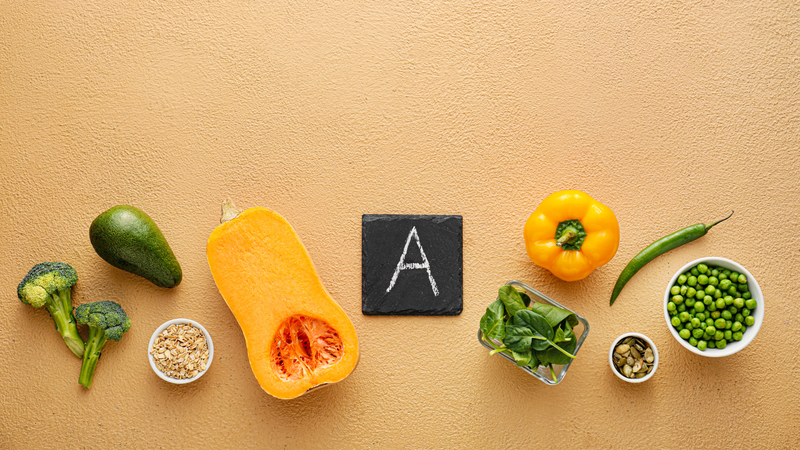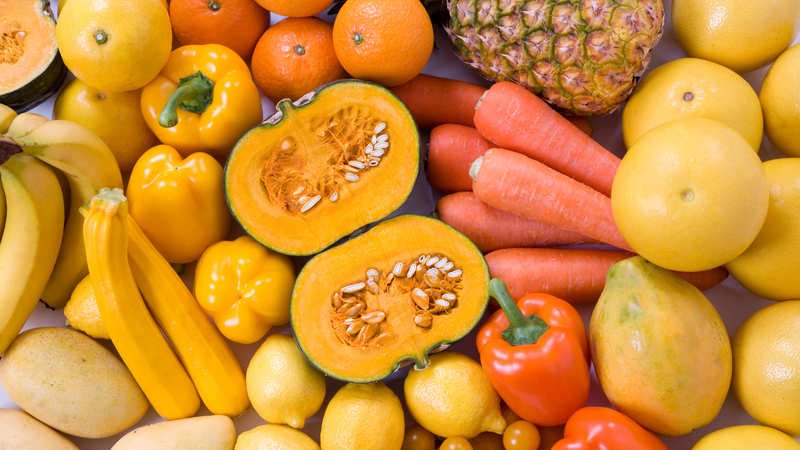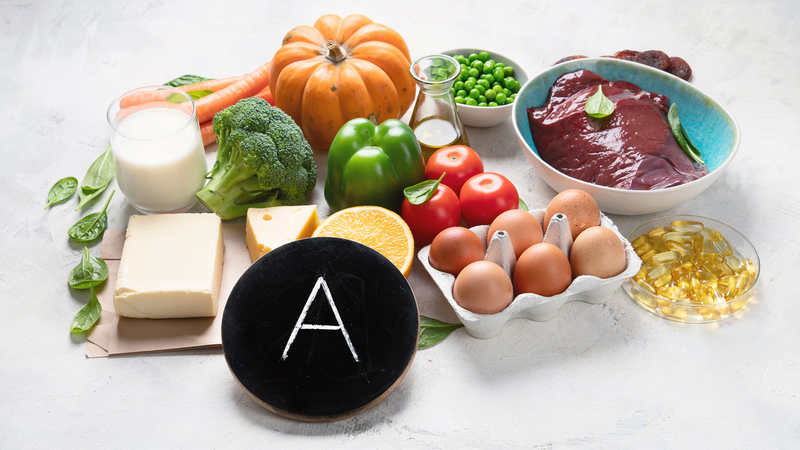Vitamin A is an essential nutrient that plays an important role in many functions of the body. However, excessive vitamin A supplementation has the potential to cause poisoning. So how can we avoid vitamin A poisoning in our daily diet, helping us enjoy the benefits of vitamin A without encountering unwanted risks?
Vitamin A is an essential nutrient in the group of fat-soluble vitamins, playing an important role in maintaining the health of the eyes, skin, immune system and many other body functions. However, due to its fat-soluble nature, vitamin A can accumulate in the body, causing the risk of poisoning if consumed in excess. Here are ways to avoid vitamin A poisoning in your daily diet that you need to know.
The important role of vitamin A
Vitamin A has three main forms: Retinol, retinal and retinoic acid. Of which, retinol is the most common form found in foods of animal origin such as liver, fish, eggs and milk. Retinoic acid plays an important role in maintaining vision and skin, while retinal is involved in the photochemistry of the eye.

Vitamin A is an important nutrient for the body.
Vitamin A deficiency can lead to serious health problems, especially xerophthalmia, which causes impaired vision and even blindness if not treated promptly. In addition, vitamin A is also necessary for children’s development, improves the immune system and helps wounds heal quickly.
Vitamin A poisoning: Causes and symptoms
Because vitamin A is fat-soluble, it is impossible to excrete excess amounts through urine, making the body susceptible to poisoning if consumed in excess. Vitamin A poisoning can be divided into two types: acute poisoning and chronic poisoning:
- Acute poisoning: Usually occurs when consuming large amounts of vitamin A in a short period of time, at doses of about 25,000 IU/kg. Symptoms include nausea, vomiting, headache, blurred vision; in some severe cases, muscle damage and personality changes may occur.
- Chronic toxicity: Occurs when vitamin A levels exceed 4,000 IU/kg per day over a long period of time (6-15 months). People with impaired liver or kidney function, or who drink a lot of alcohol, are at higher risk. Symptoms include hair loss, dry mucous membranes, fatigue, weight loss, bone fractures, and anemia.

Nausea is one of the symptoms of acute vitamin A poisoning.
How to avoid vitamin A toxicity?
Many people wonder how to avoid vitamin A toxicity in their daily diet. Here are some tips for using vitamin A safely:
Follow the recommended dosage
To use vitamin A safely, you need to follow the recommended dosage:
- Adult males: About 900 micrograms (mcg) of vitamin A per day.
- Adult females: About 700 micrograms (mcg) of vitamin A per day.
- Children: Need to follow the vitamin A intake schedule prescribed by health authorities, usually in June and December each year.
For people with higher needs such as pregnant women, breastfeeding women, or those with immunodeficiency diseases, the dosage may be higher, but should be consulted by a doctor.
Use Carotenoid-Rich Foods Instead of Retinol
Carotenoids, such as beta-carotene found in carrots and other orange, red, and yellow vegetables, are not toxic even when consumed in large amounts. The body only converts some of the beta-carotene into vitamin A as needed, which helps avoid the risk of toxicity.

Use foods rich in carotenoids to safely supplement vitamin A
Control the use of dietary supplements
If it is necessary to supplement vitamin A in the form of medicine or dietary supplements, make sure to follow the instructions on dosage and duration of use. Do not arbitrarily increase the dose or prolong the duration of use without instructions from a medical professional.
Pay attention to your diet
Because vitamin A is fat-soluble, absorption depends largely on the amount of lipid (fat) in the meal. A diet too high in fat not only increases vitamin A absorption but can also cause other health problems. Therefore, it is necessary to maintain a balanced diet, avoiding eating too many fatty foods while taking vitamin A supplements.
Supplementing vitamin A naturally through food not only ensures adequate supply of the necessary vitamin for the body but also helps increase absorption and minimize the risk of excess. Foods such as fish, milk, liver, poultry, dairy products and many colorful fruits and vegetables such as carrots, squash, lettuce, tomatoes and watermelon are excellent sources of vitamin A.

Prevent vitamin A poisoning in daily diet
Vitamin A is an important nutrient, but excessive use can lead to toxicity and harm to health. So how can you avoid vitamin A toxicity in your daily diet? By following the recommended dosage, prioritizing foods rich in carotenoids, and controlling the use of supplements, you can maximize the benefits of vitamin A without the risk of toxicity.
A reasonable diet and understanding the body’s nutritional needs are the keys to maintaining good health and avoiding potential risks.





